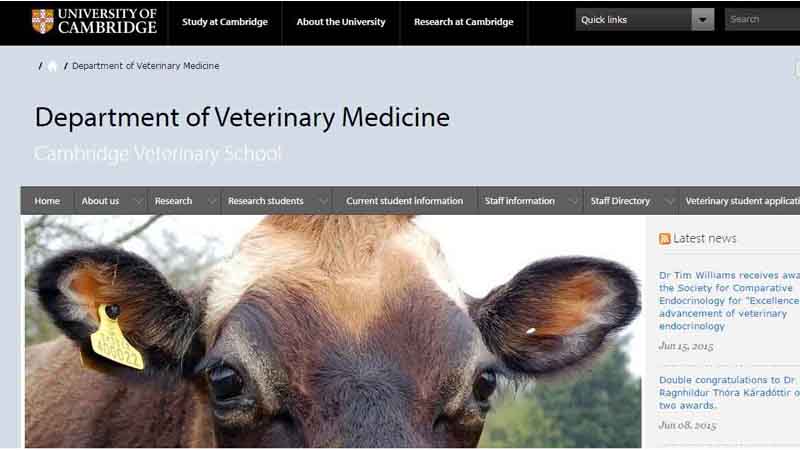
09-30
2021
Cambridge Interview Experience- Veterinary Medicine
I was incredibly nervous before my interview as I had almost no previous interview experience. However, to prepare for the interview my dad had asked me lots of questions in a practice interview situation and a lot of the more obvious questions came up...
<p><strong>Q. Briefly tell us about your interview</strong></p><p> </p><pre>A. I was incredibly nervous before my interview as I had almost no previous interview experience. However, to prepare for the interview my dad had asked me lots of questions in a practice interview situation and a lot of the more obvious questions came up. For example I was asked why I had picked my subject and also what I did in my spare time as warm up questions. I had two interviews. The first interviewers were friendly and this helped to relax me. One of the questions I was asked was to estimate the number of amino acids in the human body. At first this question seemed very daunting, but just breaking it down helped to me to reach an answer. The first step was to estimate the percentage of the human body comprised of protein and then to use A-level chemistry knowledge to help finish it off. I felt an enormous sense of achievement when I got to an answer. I found the second interview much harder than the first. It started off well as I was asked a question that I already knew so I worked it out aloud in a logical way and pretended that I hadn't previously known the answer. The questions that followed were much harder. I was asked how someone blindfolded in a room could tell which direction a sound was coming from. I hadn't done Physics past GCSE level and so this question was designed to push me. I started off with more obvious answers such as how the volume of the sound would help to locate where it was coming from. I then made some guesses that were wrong but showed that I was thinking for myself.</pre><p> </p><p><strong>Q. What would you say was best done by you during your interview?</strong></p><p> </p><pre>A. When I wasn't sure about the question they were asking I asked the interviewers for clarification. For example I was asked about 'wings' on a horse foot. I didn't really understand what they meant by wings and so I asked a lot of questions until I did and I think that my interest in learning about this actually came across in the interview.</pre><p> </p><p><strong>Q. What was your motivation in studying the subject?</strong></p><p> </p><pre>A. I liked science and maths at GCSE and A-level and they were my best subjects. I am also genuinely interested in how the body actually works, especially the brain, and in my third year at Cambridge I am going to study neuroscience.</pre><p> </p><p><strong>Q. Advice for prospective applicants?</strong></p><p> </p><pre>A. Make sure that you know your personal statement inside out. Also it helps if you briefly reference something in your personal statement, but actually have a much deeper knowledge of it as this will impress the interviewers if they ask you about it. Do lots of interview practice with parents and other members of the family- this can be embarrassing at first but if you can do it in front of them then you can do it in front of anyone! Also I would say that it is good to be a little nervous, but it is important to relax and speak slowly and clearly. Don't be afraid to take a few seconds to think about a question before launching into an answer and going down the wrong path.</pre><p> </p><p><strong>Q. Any more that you would like to share?</strong></p><p> </p><pre>A. Try to convey your enthusiasm for your subject for example through extra reading in your personal statement that demonstrates you have gone over and above the A-level curriculum. Also try not to say 'I don't know'; it is better to ask for a clue or to have a stab at a question even if you have no idea.</pre><p> </p>